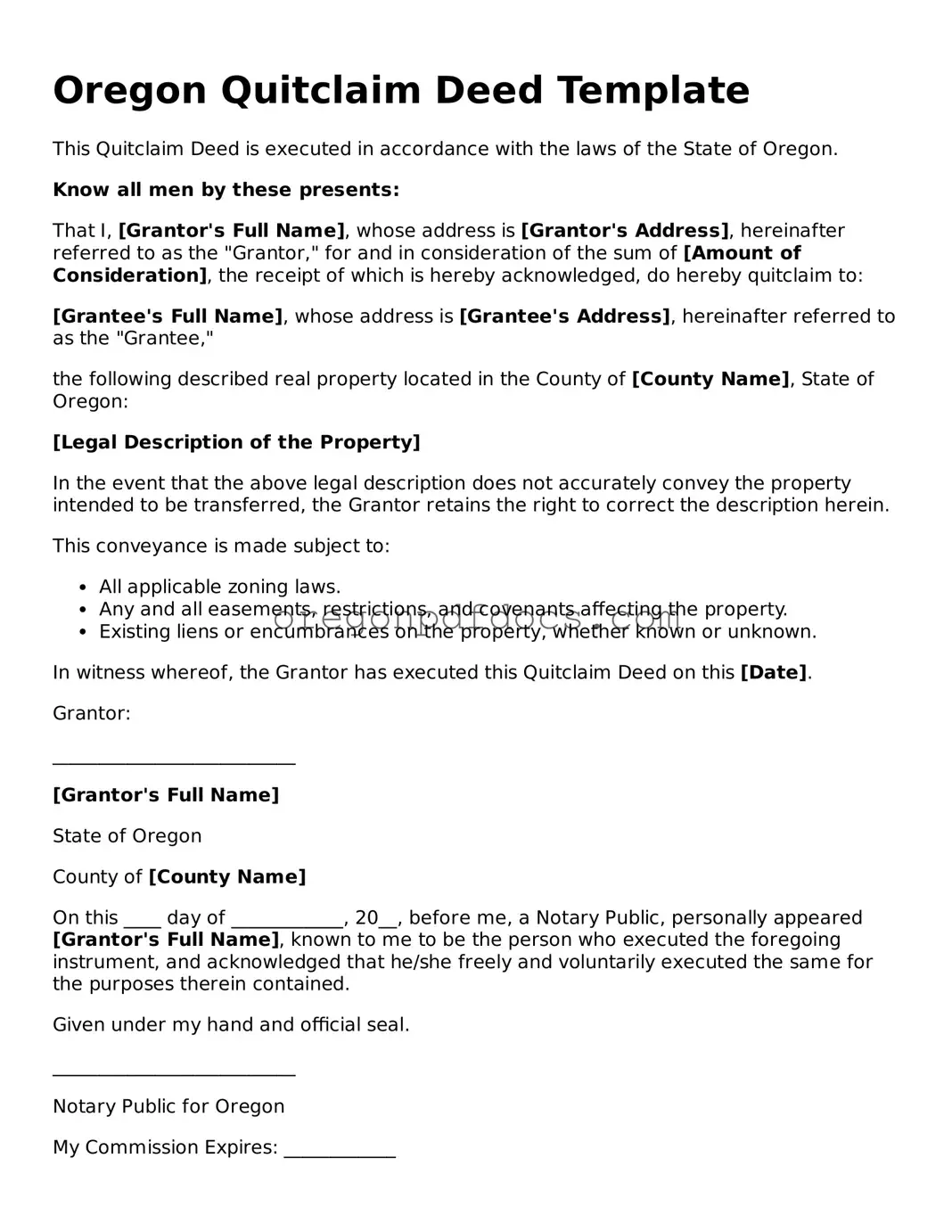Printable Oregon Quitclaim Deed Document
A Quitclaim Deed is a legal document used in Oregon to transfer ownership of real estate from one party to another without guaranteeing the title's validity. This form is often utilized in situations such as property transfers between family members or in divorce settlements. To get started on your property transfer, fill out the form by clicking the button below.
Make My Document Online

Printable Oregon Quitclaim Deed Document
Make My Document Online

Make My Document Online
or
Get Quitclaim Deed PDF Form
One more step to finish this form
Finalize your Quitclaim Deed online in a few easy steps.